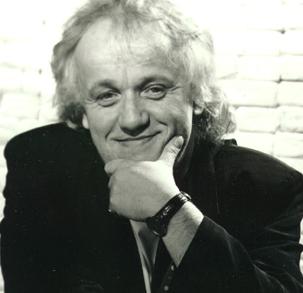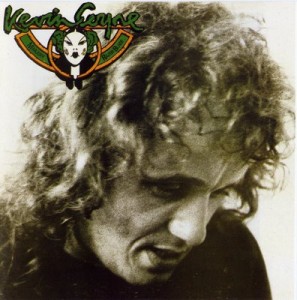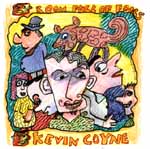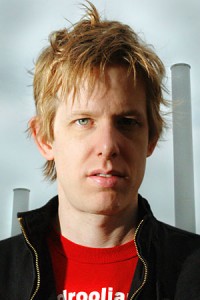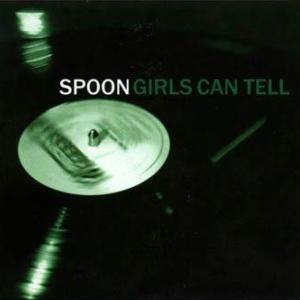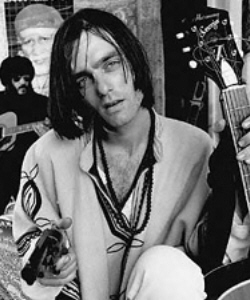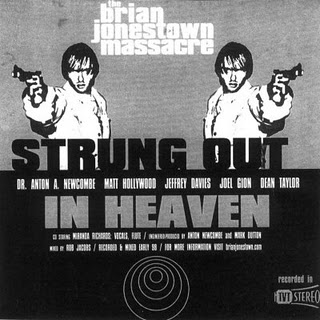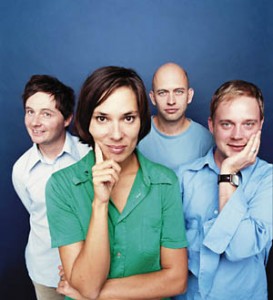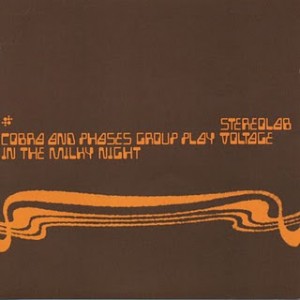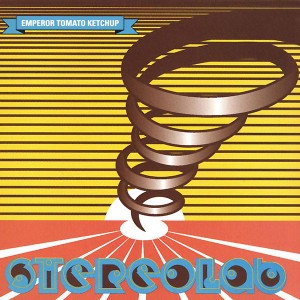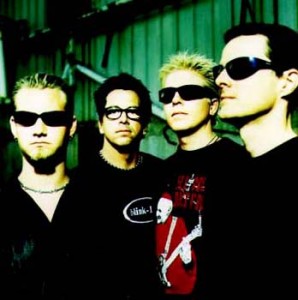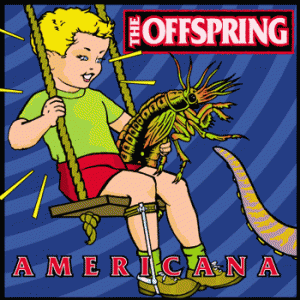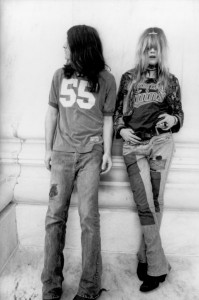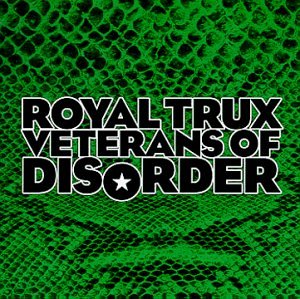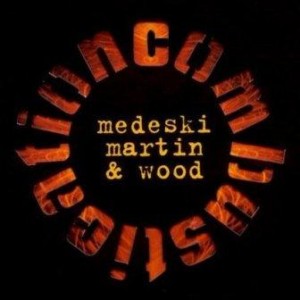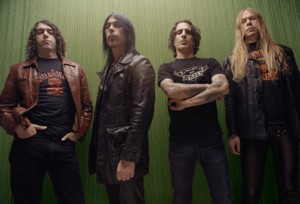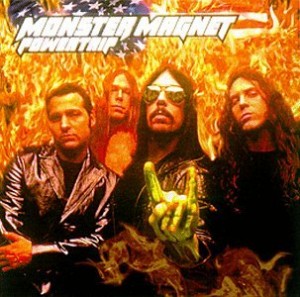FOREWORD: With a peculiarly bashful baby girl voice and an underrated proficiency on piano and guitar, semi-popular singer-songwriter Victoria Williams has made many friends in the music industry thanks to her sweet-natured temperament and undeniable talent. These friends supported her when she couldn’t afford health care to pay for multiple sclerosis treatment via ‘93s excellent multi-artist Sweet Relief LP.
In the beginning, Williams’ melodramatic ’87 debut, Happy Come Home (with orchestral strings provided by Van Dyke Parks), found its way to a small audience. ‘90s minimalist Swing The Statue bettered that with its more natural earthen folk approach, but not as much as ‘94s spiritually rejoicing Loose (released a year after her illness was put into remission).
I caught up with the lovable hippie-like boho in New York City late ’97 while she was promoting Musings Of A Creekdipper. She was every bit as demure and friendly as I had anticipated -and genuinely glad to meet fans and sign stuff after her Bottom Line set.
Two years later, she put out the efficient Water To Drink (again using the services of Parks) and I got to speak to her over the phone. She has since dropped ‘02s covers-album of standards, Sings Some Ol’ Songs and a few LP’s with husband, Mark Olson, as the Original Harmony Ridge Creekdippers. I have attached both interviews below. These articles both originally appeared in Aquarian Weekly.
With a voice that quivers and warbles like Stevie Nicks and has the childlike innocence of Cyndi Lauper’s ballads, Joshua Tree, California’s Victoria Williams has come a long way since being diagnosed with multiple sclerosis in ’92. Sweet Relief, a heartfelt benefit album featuring Pearl Jam, Lou Reed, Matthew Sweet, Evan Dando, Maria Mc Kee, and others, paid tribute to her songs in ’93. A year later, Williams’ remarkable third album, Loose, presented her as a fully mature acoustic stylist, able to blend various American music traditions under the umbrella of contemporary folk.
For ‘97s Musings Of A Creekdipper, Williams gives her newest original songs the solid musical support of husband Mark Olson (the Jayhawks), Joey Burns and John Convertino (Giant Sand/ Calexico), and Wendy Melvoin & Lisa Coleman (Prince & the Revolution). Neo-Classical piano reflection, “Periwinkle Sky,” lulling ballad “Tree Song (Eucalyptus Lullaby),” Appalachian-styled folk anecdote “Kashmir’s Corn,” and noir-ish drama “Nature Boy” (written by deceased lounge eccentric Eden Ahbez) show Williams pensively exploring expansive territory once again.
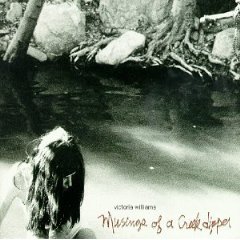 Personable, caring, soft-spoken, sweet, and demure, Victoria Williams may be afflicted by a crippling disease (presently in remission), but she’s got a big heart, and at least figuratively, not a bad bone in her body. For those who’ve already discovered her warm, tender soprano and imagery-laden songs, ‘97s Musings Of A Creekdipper solidifies her reputation as a commendable folk torchbearer.
Personable, caring, soft-spoken, sweet, and demure, Victoria Williams may be afflicted by a crippling disease (presently in remission), but she’s got a big heart, and at least figuratively, not a bad bone in her body. For those who’ve already discovered her warm, tender soprano and imagery-laden songs, ‘97s Musings Of A Creekdipper solidifies her reputation as a commendable folk torchbearer.
Do you think acoustic artists have more opportunities to get exposure these days?
VICTORIA: Yes. It’s come of age. Recording techniques have improved, making it easier for the artists. The great thing about acoustic artists is they restore the folk tradition. And you can carry your instrument into shows without having to depend on too many people. People are hearing it and liking it. Besides, real loud music tears up your ears pretty badly.
Did you enjoy playing Lilith Fair?
VICTORIA: I really enjoyed it. Tracy Chapman was great. It was the first time I saw her. It was great to hear Paula Cole. And I was astounded by Fiona Apple. She has a beautiful voice.
Fiona Apple writes very provocative songs for such a young lady. Is it difficult to write enduring ballads that captivate conflicting emotional feelings when you’re young?
VICTORIA: Yeah. But in my life I think that’s when I wrote most of my relationship songs – when I was 19 or 20. Emotions controlled me more often then.
Do you write songs about local folks and acquaintances more nowadays?
VICTORIA: Yeah. Like “Grandpa In The Cornpatch” has a lot of people that I met and love in song. It’s about my grandfather and people like Emmanuel and Apricot and Jill down in Georgia. It’s written on piano.
Your other kernel-related song, “Kashmir’s Corn,” has an Appalachian folk appeal.
VICTORIA: I wrote that song on a long neck banjo which I’ve used a lot on recent songs. Greg Leisz plays lap steel. My old friend, Danny Frankel, who’s played with Lou Reed and Fiona Apple, plays mandolin. I hadn’t played with him in six years.
The funk/Jazz rhythms inundated by synth-like overtones make “Train Song” a slight departure for you.
VICTORIA: Wendy and Lisa sing on that song and “Hummingbird.” I used a tape loop on “Train Song.” We cut it live with the loop and I had to rewrite the song because I was embarrassed by the first take. I never used loops before, but it gave the song nice imagery.
Are you as spiritual as the biblically transformed “Last Word” would lead me to believe?
VICTORIA: I’m spiritual in that I’m always praising God for who I am. I’m thankful for Jesus. I was raised Methodist, but I’d skip church and run away as a bad little girl. When I got older and moved to California I watched TV evangelists and they got to me. Ever since then I’ve become a believer.
How did you come up with the album title, Musings Of A Creekdipper?
VICTORIA: The name stems from my summer band the Creekdippers. There’s fluctuating members. There’s the Rolling Creekdippers who went to Europe. It had Mark Olson, Jim Lauderdale, and Buddy and Julie Miller. The Original Harmony Creekdippers are just Mark, myself, and Raz. Anyway, at the end of recording my album, I went swimming at this creek and a gal took a picture of me. When I saw it I said, ‘Oh that’s gonna be the cover of my album and I’m gonna call it Musings because I looked like a person in a creek musing about.’
I also noticed you co-produced the new album.
VICTORIA: I co-produced with Tina Shoemaker, who was incredible. She engineered all the stuff at Joshua Tree. She’s just a gal I had wanted to work with previously in Louisiana, but it was foiled. She insisted on giving me credit on this album. Tina has great training and brought in loads of equipment. On the last two albums, I should’ve got production credit, but I didn’t want to put up a fight.
Since your last studio album, Loose, was so well received, did it become difficult coming up with more excellent material for Musings?
VICTORIA: When I finished this record, I walked over to my neighbors’ house to give their horse some carrots to eat. And I heard this music and thought, ‘Wow. What’s this. It sounds good.’ And I realized it was Loose. And I thought, ‘That’s a really good record.’ Then I felt very sad about this album. Then after not hearing Musings for a couple months when I was away in New York, I thought, ‘I do like this record.’ Everything sounded better. But I went through the doldrums for a few months thinking, ‘What have I done?’ My manager says it’s a more mature record.
Which poets or novelists do you enjoy?
VICTORIA: There’s a brilliant novel, Knots, written by E. Annie Proulex. It’s got a lot of different levels going on at the same time. Then she ties it all up with different knots. I read Dostoevski’s The Idiot. It’s a really long book. The supposed ‘idiot’ deals with these townspeople who are really the true idiots. I read Crime And Punishment, but that was painful. You have to get into this fellow’s character and deal with the fact he’s committed murders.
Did you see Sling Blade yet?
VICTORIA: That was such a great movie. Dwight Yoakam plays this creepy guy. I got mad at him when he hit Vic Chesnutt (editors note: Vic’s a wheelchair-bound singer-songwriter to whom Sweet Relief II is dedicated).
Yoakam does a good job characterizing a vicious bastard who mistreats women.
VICTORIA: I used to have the syndrome that a lot of women do, where you pick these bad guys to go out with. I was the type of woman who thought I could see beyond the surface, where a good person lies beneath. I kept going out with the same type of miserable person until I grew up and realized I had to go out with somebody who truly loves me.
What is your husband, former Jayhawks member, Mark Olson, working on presently?
VICTORIA: He has his own record as the Original Harmony Ridge Creekdippers that he’s selling for $12. He gets the orders and fills them himself. He enjoys doing that. His best friend and former Jayhawks member, Raz Russell, is on it, along with me.
How is the Sweet Relief Musicians Trust Fund doing?
VICTORIA: It helps musicians without health care benefits. They’ve given away $350,000 to down and old, mostly older musicians. We just had a benefit the other day where musicians auctioned off the Christmas tree ornaments they made. It made over $20,000 for Sweet Relief. The people who work at the record label have health insurance, but their artists do not.
———————————————————————
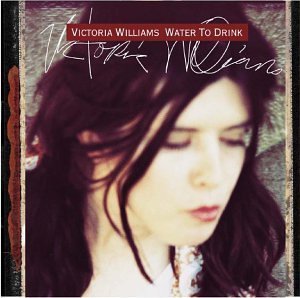 SWEET RELIEVER VICTORIA WILLIAMS PROVIDES ‘WATER TO DRINK’
SWEET RELIEVER VICTORIA WILLIAMS PROVIDES ‘WATER TO DRINK’
Fresh-faced singer-songwriter Victoria Williams is chewing on a carrot and nut brownie (“an energy nugget,” she calls it), dipping her feet in the cold water of Saskatoon, and watching leaves change to autumn colors as she takes my phone call.
“It’s gloriously painted before my eyes,” the post-hippie chanteuse chirps in a sexy childlike voice as she drinks in the outdoor scenery before her.
Ever since her ‘87 debut, Williams distinctive reedy soprano has warbly quavered ever so sweetly above original rural Country folk that’s as pure as newly fallen snow. Her new 2000 disc, Water To Drink, may be her most diverse and distinguished set yet, expanding the low-key tone of ‘98s gorgeous Musings Of A Creekdipper with help from violinist/ backup singer Petra Haden (from soft-pop band That Dog), veteran guitarist/ pedal steel player Greg Leisz, and pianist J.C. Hopkins.
Legendary art-rock arranger, Van Dyke Parks (who wrote the Beach Boys “Surf’s Up” and made cultish ‘60s albums; produced debuts by American icons Randy Newman and Ry Cooder; and recorded ‘95s Orange Crate Art with pop-savant Brian Wilson) provides Williams’ versions of Sammy Cahn’s big band standard, “Until The Real Thing Comes Along” (featuring John Birdsong on cornet), and the Frank Sinatra-aligned “Young At Heart” with an exquisitely lush and perfectly antiquated orchestral sweep.
Brazilian bossa nova legend Antonio Carlos Jobim’s well-known samba, “Water To Drink,” gets draped in a lounge-y soft Jazz setting with Williams scatting through the verses beautifully. But there are several fine originals, too.
At her most intimate on “A Little Bit Of Love,” Williams’ cracked spiritual karma and naïve heartfelt charm shine brightest. “Gladys & Lucy” resounds with regal trumpets and a soulful organ groove while the restrained down home rural splendor of “Grandma’s Hat Pin” seems to yearn for the days when Williams was growing up in Shreveport, Louisiana. Husband Mark Olson (formerly of alt-Country icons, the Jayhawks) offers acoustic guitar and harmonies to triumphantly sentimental ballad “Joy Of Love.”
A cheery survivor who’s able to find peace and solace through nature despite being diagnosed with multiple sclerosis (now in remission), this delicate sunflower continues to bloom as a soloist and a proud member of Olson’s roots-y, underexposed combo, the Original Harmony Ridge Creekdippers.
Last time we spoke, you were trying to get the rights to record outside material. With the three covers on Water To Drink, I imagine you’ve accomplished that.
VICTORIA: Funny you should say that. I had to get permission from Jobim’s institution to record “Water To Drink.” They heard our version and liked it. But then there was this cat, Norm Gimble, who was mad. He said he had all the rights to English versions. I’d only heard the Portuguese versions. So this friend of J.C.’s wife spoke Portuguese and interpreted literally the Jobim version. Then I scooted the words to fit my voice. I retained the essence of what Jobim said. I managed to find Gimble’s interpretation. I wouldn’t have sang it if I had to use his words. They had nothing to do with Jobim’s words. That’s like having a copyright on someone else’s poem.
How’d you hook up with seasoned arranger Van Dyke Parks?
VICTORIA: We had already cut “Young At Heart’ and “Until The Real Thing Comes Along” with a four-piece Jazz ensemble at our home studio with primitive miking. I sent a tape to Van Dyke and he wrote the strings. He’s such a genius. His arrangements are Copeland-esque. If you hire Van Dyke, you know you have to be ready. He added ribbons and very ornate things.
Why’d you decide to cut Big Band standards instead of more modern compositions for this album?
VICTORIA: I actually pulled some originals out to put them on. I spent so much time recording those. But my manager told me Atlantic Records didn’t want standards because they loved my originals. I like to watch old movies out in the desert where I live. So I rented the movie Young At Heart with Sinatra. He also sings “One Of Those Things,” which is the most excellent version of it. He’s at the piano late at night. It’s just gorgeous. I tried to cut it, but it didn’t work out.
Who are some of your favorite Jazz artists?
VICTORIA: I like John Coltrane, Thelonius Monk, Pharoah Sanders, Sun Ra, and Miles Davis’ old stuff.
Do you like free Jazz by Ornette Coleman or Henry Threadgill?
VICTORIA: I saw Ornette and was pretty impressed. But I’ve never seen Threadgill. I like most Jazz, but I don’t like Jazz fusion. It lacks soul and is too mealy.
I thought you sang a little like Rickie Lee Jones on “Claude.” Although it’s an original, it sounds like a standard.
VICTORIA: I don’t think it sounds like Rickie, but that’s a complement. It’s about allies we have in life. When I was going through sobriety, there was this little squirrel that would visit me and I’d feed him nuts. He learned trust and I learned patience. I believe everywhere you go you have allies who are sent to give help to get through life.
Did you benefit from using the computer-based Pro Tools for this recording?
VICTORIA: Yeah. It makes things a lot easier and a lot less expensive because you could try things out that used to take a whole day in only five minutes. It’s a definite asset.


